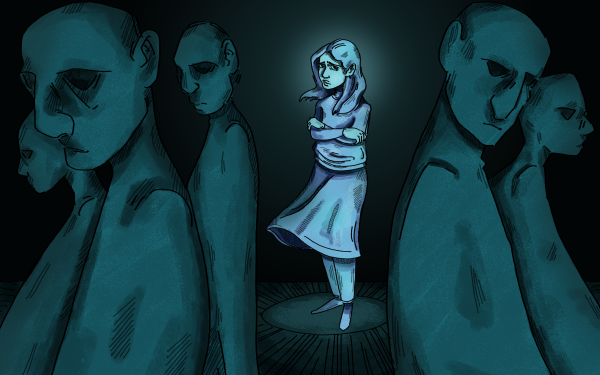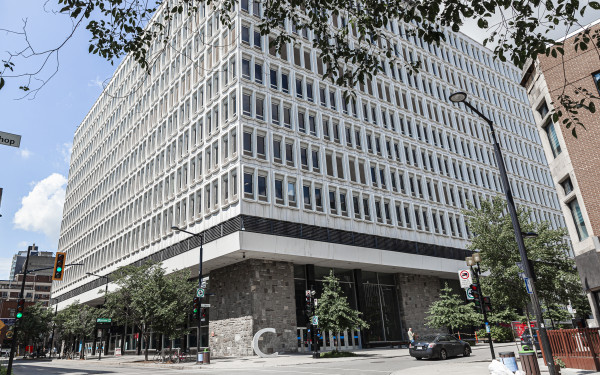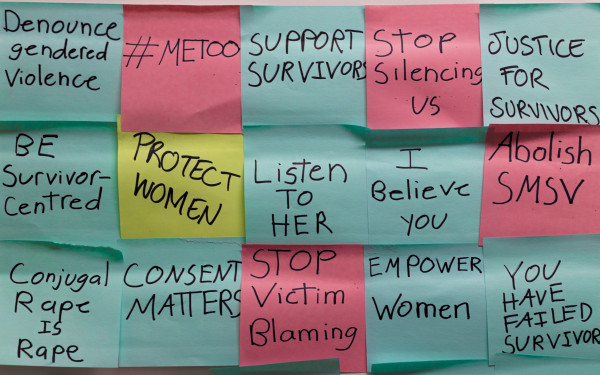ITFA’s Fight for Sexual Violence Survivors
New Association on Campus Seeks to Replace SMSV Committee
Amid a series of potential Accreditation act violations, an ongoing boycott and an unbalanced ratio of students on the Standing Committee on Sexual Misconduct and Sexual Violence (SMSV), a new grassroots association is budding at Concordia.
Growing to replace the foundation for how Concordia handles sexual misconduct and sexual violence cases is the Inter-organizational Table for Feminist Affairs.
ITFA is a collaboration between labour unions, student unions, and other groups working at Concordia, explicitly trying to achieve gender equity and fighting sexual violence.
The organization is also responsible for formally sending out a letter of demands to the university following the SMSV boycott, which began on Oct. 5, 2022. Since the letter was forwarded, ITFA's line of communication with the university has ended at receiving an acknowledgement of their demands.
Their three demands are for student-led solutions, transparency, and gender equity. ITFA plans to achieve these demands by maintaining its boycott, pressuring Concordia.
"I've been at Concordia since 2017. So I've seen how there has been this progression of sexual violence," Julianna Smith, the Concordia Student Union’s external affairs and mobilization coordinator and a representative for ITFA, told The Link.
Smith mentioned the issue of sexual violence on campus "is being addressed, but not in a way that is actually supporting students and supporting survivors."
So far, ITFA comprises the CSU, Graduate Students' Association (GSA), Teaching and Research Assistants at Concordia (TRAC), and the Center for Gender Advocacy.
According to Smith, the organization is planning to reach out to other unions on campus. ITFA is working on gathering more stakeholders because they desire to have a variety of voices at the table to ensure that they represent what students and workers want.
"Our next steps of where we wanna take [ITFA are that] we want to broaden it," Smith said. "We are hoping that by having [other unions], we can have students have a direct line of communication with ITFA."
ITFA gathers twice a month and meets with newer member organizations interested in sending representatives to the coalition. According to Saskia Kowalchuk, TRAC’s Mobilization Officer and TRAC representative for ITFA, the meetings are to build and decipher capacity and clarify what mandates should be imposed.
When asked why ITFA was created, Kowalchuk answered, referring to SMSV, that "the student representatives were historically undermined. They weren't really given the chance to participate meaningfully."
"We have a minority seat on [SMSV]; we are four of 13 representatives. We were never able, in terms of our shared interest, to vote with any power against maybe opposing views from the administration,” Kowalchuk told The Link.
“We decided it would be a lot better use of our power and our numbers to boycott the committee because we felt that as an advisory body, it didn't meaningfully do what it set out to do in terms of changing policy around sexual violence at Concordia,” added Kowalchuk. “As students, as student workers, and as supporters of survivors of sexual violence, we didn't want to participate in what we see to be an invalid process."
ITFA’s members wanted to additionally call out to and welcome any students currently sitting on the SMSV committee to have a neutral conversation with them.
"We would really like to give them the context as to why there is a boycott going on and just let them know our side of the situation, as well so that they can make a fully informed decision on whether or not they want to actually sit on the committee," said Smith.
ITFA is still in the process of developing an onboarding process and deciding who can be a member of the association. "The core of it is that we want it to be worker and student-run, rather than being run by the administration,” Smith added. “We want the democratic bodies at the university that represent students and workers to have the most power to enact policy changes and take action."
This article originally appeared in Volume 43, Issue 12, published February 21, 2023.







